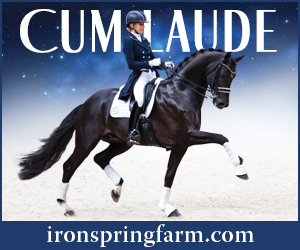By Amanda Ciejko
Just as with humans, horses can have “off” days. Generally, when described as “off”, a horse is acting lethargic, depressed, or displaying lameness or changes in normal behavior. More often than not, the following factors can provide reasoning as to why your horse might be “off”.
Dehydration
Hydration is supremely important for all living animals. Water makes up 65% of a horse’s body weight and is crucial for every function in the body, from regulating temperature and blood circulation, to aiding in digestion and replenishing electrolytes.
Therefore, if your equine is acting a little “off”, one of the first things to check on is their water intake source and urine output. There are many reasons as to why horses decrease their water intake, including contaminated (or dry) water sources, loss of electrolytes through sweating or exertion, or temperature changes (drinking less in colder weather). There are many symptoms and various degrees of dehydration. Mild dehydration can display a failed pinch test (pinched skin doesn’t rebound and flatten immediately) and lethargy/depression, while severe dehydration can be identified by muscle spasms, signs of pain, and even colic.
Always make sure your horse has adequate access to water- they can drink up to 12 gallons a day. Learn how to check for dehydration doing a skin-pinch test or assess their capillary refill time (CRT), and note any changes in their water intake or urine output. If you think that your horse is experiencing symptoms of dehydration, contact your veterinarian.
Soreness
As athletes, we expect a lot out of our equine partners. Regular training and conditioning programs are the best way to prevent injuries, but demanding more than their level of conditioning can cause symptoms of soreness. Muscle soreness can also accompany or indicate skeletal, tendon, ligament, or neurological problems. There are various causes of why a horse may be “off” due to soreness, including loss of conditioning, improperly fitted tack, or chronic/recent lameness history. A lameness examination can rule out skeletal, tendon, and ligament injuries, and help pinpoint the location of the soreness to aid in diagnosis.
Lameness
Lameness is a clinical sign of pain, restriction of movement, and/or neuromuscular disease. It covers a very broad spectrum of injuries that can affect horses in all stages of growth. In classic cases, it’s pretty easy to observe lameness; the horse is clearly displaying an abnormal gait or stance, a distinct head bob when shifting weight off the affected area, and is unwilling to move or put much weight on the affected area.
Mild cases aren’t always so obvious. A horse may only display a slight head bob, or be inconsistently tender on an area, for example. Therefore, if your horse is “off” and you think it could be due to a lameness issue, take note of when you notice this “off” behavior- on the ground, in the saddle, only when flexing left/right, etc. Then, consult your veterinarian, who will perform a lameness exam to help pinpoint the problem and potentially the cause. Catching a lameness problem in its early stages can greatly affect the course of treatment and prognosis, so observation is key.
Hormones
The equine endocrine system regulates and maintains many different aspects of the body, including metabolism, growth, and reproduction. Within the system, the pituitary hormones regulate (among other things) the reproductive cycle.
Mares are seasonally polyestrous, which means they go through estrous cycles multiple times per year during breeding season. Mares in heat can experience similar symptoms to premenstrual symptoms in women, such as cramping, back sensitivity, and irritability, which can vary in intensity and expression in behavior. Some mares may show a complete change in work ethic, while others act indifferent. If your mare acts “off” while in heat, keeping track of her cycle can help anticipate or prepare for changes in training or showing schedules.
A mare’s estrous cycle can also (obviously) influence the behavior of stallions in the vicinity. Some stallions are more gentlemanly than others and can maintain focus on their work, but most will act out in response to a mare in heat. This is something to keep in mind if stallions and mares will be in mixed company while being stabled or at events.
Colic
Abdominal pain in horses is generally referred to as colic. There are many different variations and causes of colic, and diagnosis is made based on a thorough exam, patient history, and determining source and location of the pain. If your equine partner is acting “off”, the following symptoms may indicate colic.
- Loss of appetite/decrease in water consumption
- Decreased manure/urine output
- Straining to defecate/urinate
- Pain indicators such as increased resting heart rate, sweating, lip curling
- Pawing, restlessness, attempting to lay down, rolling
- Odd stretched stance
- Repeated kicking or looking at abdomen/flank
- Abdominal distension
- Change in gum color/slowed capillary refill time
Even seemingly mild symptoms can be an early indication of a problem. If you observe any of these symptoms, closely monitor and keep a record of your observations, and contact your veterinarian for proper treatment procedures.















